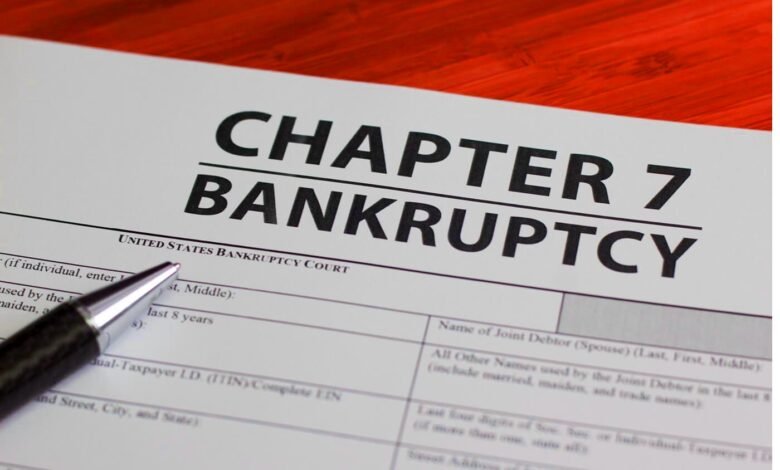How to Understand Chapter 7 Bankruptcy

Bankruptcy can be a daunting term, often associated with financial turmoil. Chapter 7 Bankruptcy is a crucial option for individuals seeking a fresh start among the various bankruptcy chapters. Understanding the nuances of Chapter 7 is essential for anyone considering this financial path.
What is Chapter 7 Bankruptcy?
At its core, Chapter 7 is a liquidation bankruptcy, aiming to discharge certain debts and provide a clean slate for the filer. However, not everyone can file for Chapter 7, and understanding the eligibility criteria is the first step in comprehending its significance.
Eligibility Criteria
To qualify for Chapter 7, individuals must meet specific income requirements and undergo a means test. This ensures that those who can repay debts do not misuse the system.
The Filing Process
Initiating Chapter 7 involves thorough documentation and legal procedures. From gathering financial records to selecting a qualified bankruptcy attorney, each step plays a crucial role in the success of the filing process.
Choosing a Bankruptcy Attorney
Selecting an experienced attorney is vital, as they guide individuals through the complexities of bankruptcy law, increasing the chances of a smooth process.
Automatic Stay
One of the immediate benefits of filing for Chapter 7 is the automatic stay—a legal injunction that halts creditor actions, providing much-needed relief to the filer.
Legal Actions During Bankruptcy
Understanding what legal actions are permissible during bankruptcy ensures individuals are informed and protected throughout the process.
Liquidation Process
The heart of Chapter 7 lies in the liquidation of non-exempt assets to repay creditors. Navigating this process requires a strategic approach to maximize the benefits for the filer.
Distribution of Proceeds
How the proceeds from the liquidation are distributed among creditors varies, and comprehending this aspect is vital for those undergoing Chapter 7.
Discharge of Debts
While Chapter 7 offers a fresh financial start, not all debts are dischargeable. Recognizing the types of debts that can be eliminated and the exceptions is crucial for managing expectations.
Exceptions and Limitations
Certain debts, such as student loans and tax obligations, may not be dischargeable, highlighting the importance of a nuanced understanding of the process.
Impact on Credit Score
Filing for Chapter 7 undoubtedly affects one’s credit score, but the extent and duration of this impact are often misunderstood.
Common Misconceptions About Credit Score Impact
Separating fact from fiction regarding credit scores post-bankruptcy is essential for those planning their financial future.
Alternatives to Chapter 7
While Chapter 7 is a viable option for many, exploring alternative paths like debt settlement or negotiation is crucial to making an informed decision.
Debt Settlement and Negotiation
Understanding the differences between Chapter 7 and alternative solutions empowers individuals to choose the path that aligns with their financial goals.
Pros and Cons of Chapter 7
As with any legal process, Chapter 7 has advantages and potential drawbacks. Recognizing these factors enables individuals to make an informed decision about their financial future.
Potential Drawbacks and Considerations
Acknowledging the limitations and challenges associated with Chapter 7 ensures realistic expectations throughout the process.
Case Examples
Real-life scenarios provide valuable insights into the Chapter 7 process, offering lessons and inspiration for those on a similar journey.
Outcomes and Lessons Learned
Examining the experiences of others sheds light on the potential outcomes and challenges individuals may face during and after Chapter 7.
Read More: Navigating Bankruptcy: A Comprehensive Guide
Common Questions about Chapter 7
Addressing common queries demystifies the Chapter 7 process, providing clarity and reassurance to those contemplating this legal step.
Clarifying Misconceptions
Separating myths from facts helps individuals approach Chapter 7 with a clear understanding of what to expect and how to navigate potential challenges.
Tips for a Successful Chapter 7 Process
Implementing best practices during Chapter 7 ensures a smoother journey and sets the stage for a successful financial recovery.
Financial Planning Post-Bankruptcy
Looking beyond Chapter 7, effective financial planning is essential for maintaining stability and avoiding future financial pitfalls.
Legal Assistance and Resources
Recognizing the importance of legal guidance, this section highlights where individuals can find reliable information and support during their Chapter 7 journey.
Where to Find Reliable Information
Accessing accurate and up-to-date resources is crucial for individuals seeking clarity on Chapter 7 and related legal matters.
Chapter 7 and Businesses
While primarily designed for individuals, Chapter 7 also has implications for small businesses. Understanding its applicability and impact on business owners is essential for a comprehensive overview.
Impact on Business Owners
Exploring how Chapter 7 may affect small businesses provides insights for entrepreneurs navigating financial challenges.
Read More: The 22 Best Law Firms in Wyoming
Conclusion
In conclusion, understanding Chapter 7 is pivotal for those seeking a fresh financial start. From eligibility criteria to the impact on credit scores, this article has aimed to provide a comprehensive guide to help individuals make informed decisions about their financial future.
FAQs
Is Chapter 7 the right choice for everyone?
Chapter 7 suits individuals facing significant debt and meets specific eligibility criteria. Consulting with a bankruptcy attorney helps determine the best course of action.
How long does the Chapter 7 process typically take?
The duration varies, but Chapter 7 bankruptcy cases often conclude within a few months, providing a relatively swift resolution compared to other bankruptcy chapters.
Can I keep any assets in Chapter 7?
Some assets may be exempt from liquidation, allowing individuals to retain particular possessions. Understanding exemptions is crucial during the filing process.
How does Chapter 7 impact employment?
Generally, Chapter 7 doesn’t directly affect employment. However, certain professions may have licensing implications, so it’s essential to consider the specific regulations in your field.
What steps should I take to rebuild my credit after Chapter 7?
Rebuilding credit involves responsible financial habits, such as timely payments and managing new credit wisely. Over time, positive economic behavior can mitigate the impact of bankruptcy on your credit score.












2 Comments